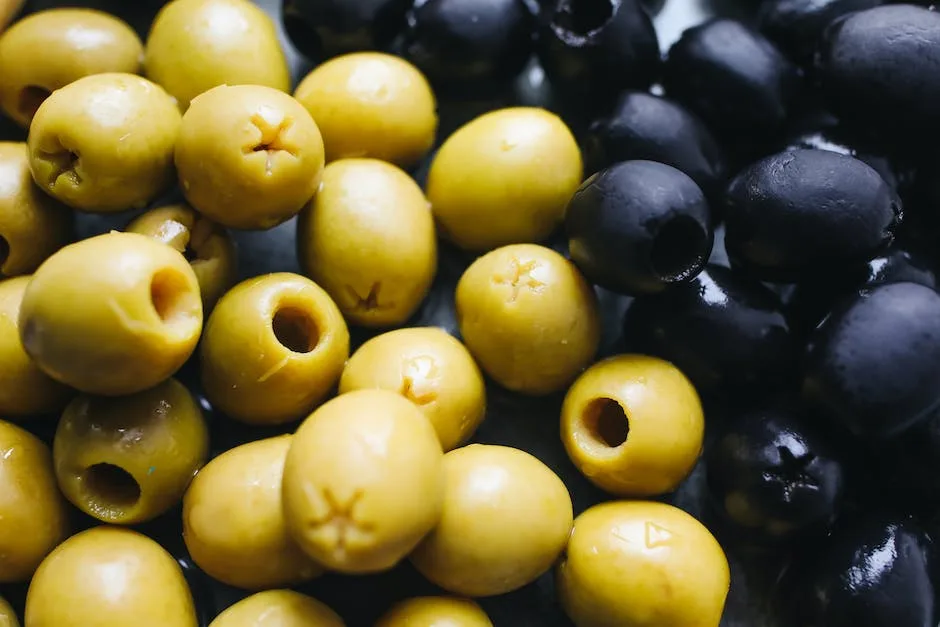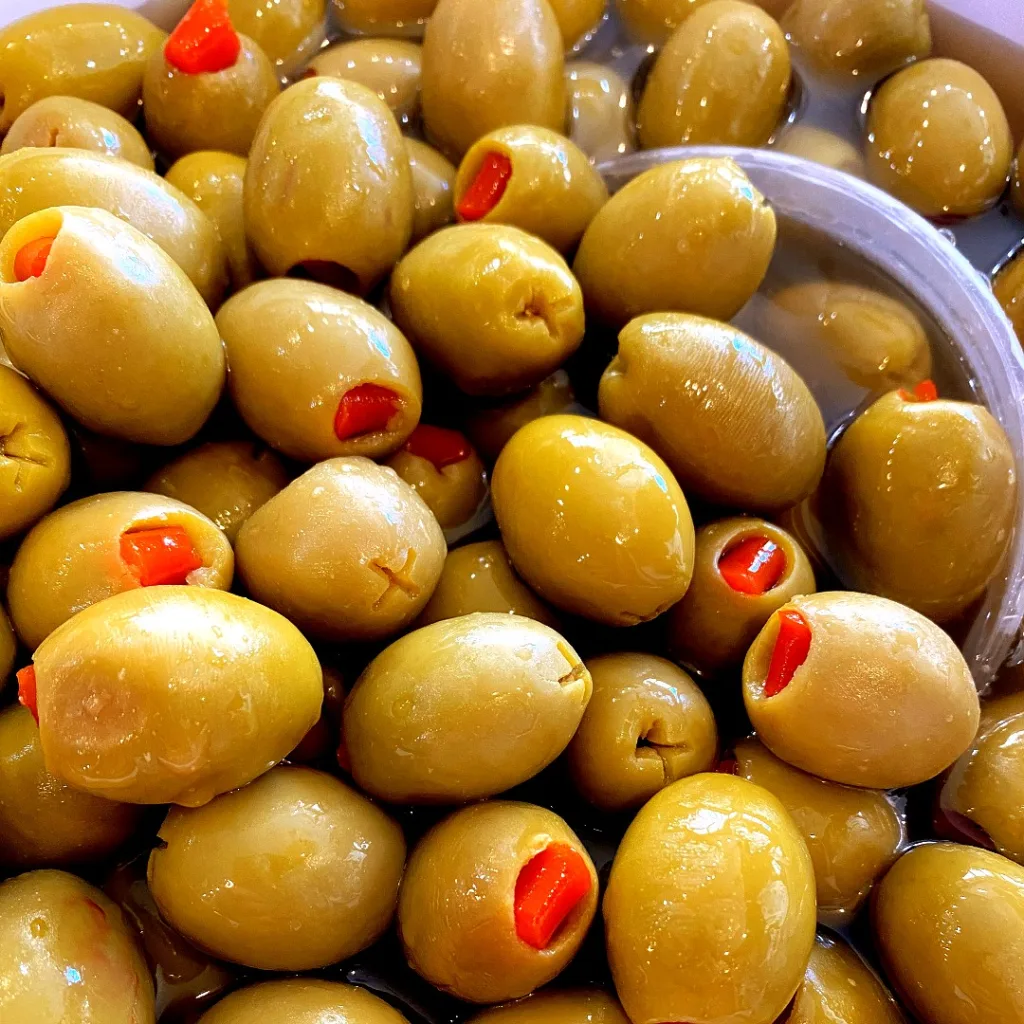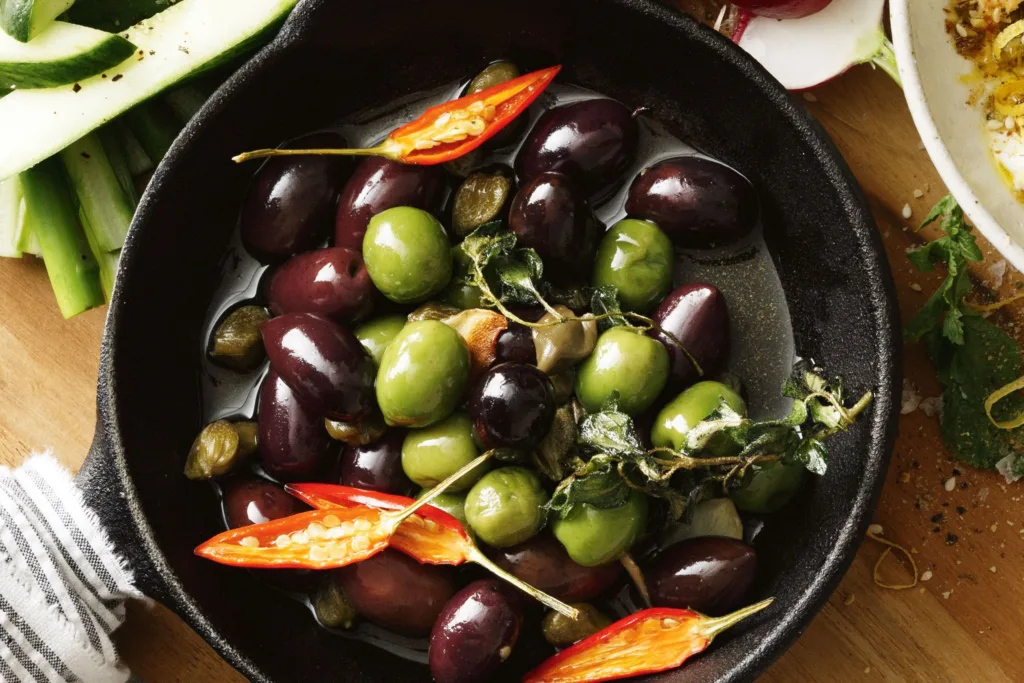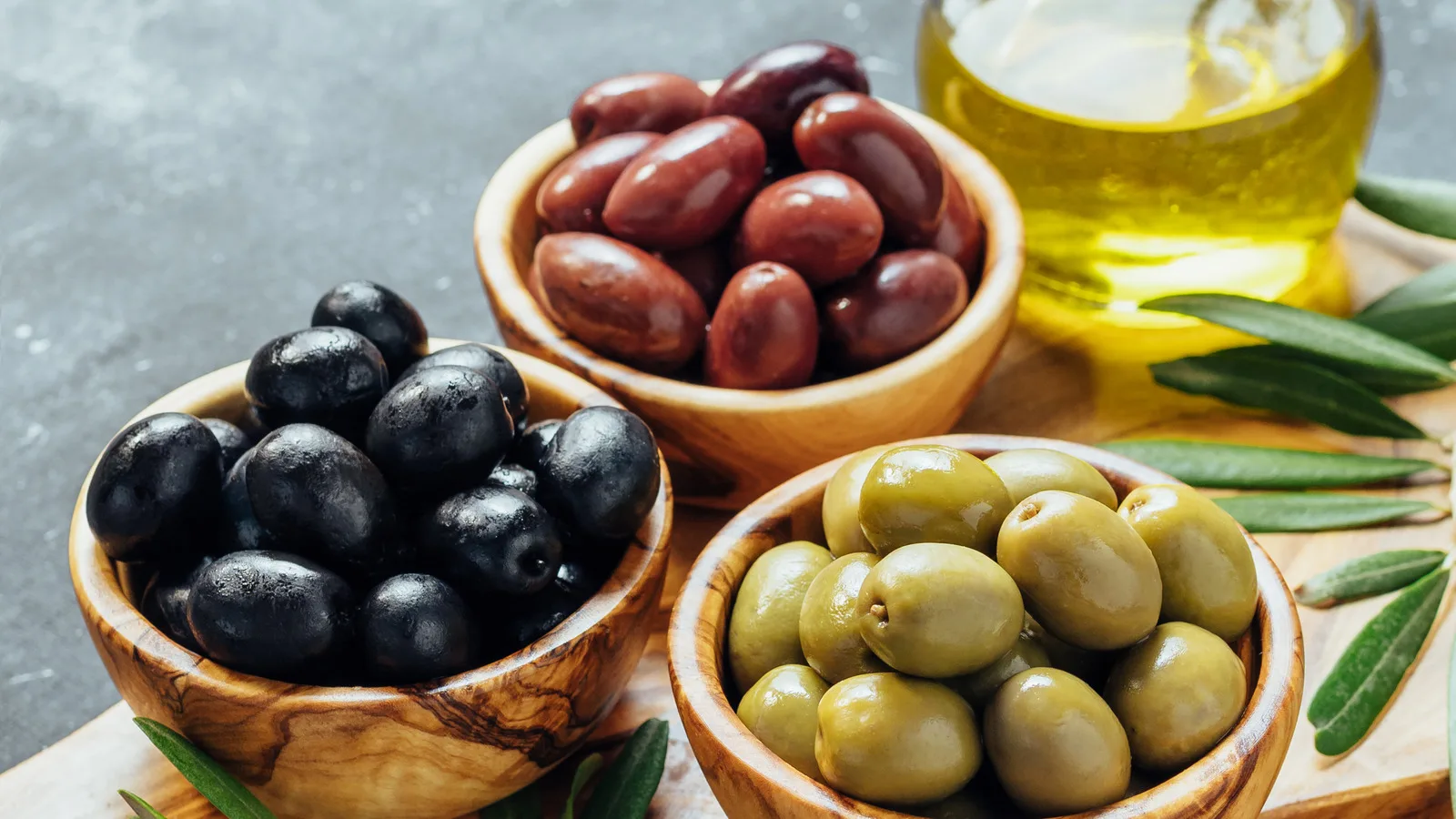The warm, sunny shores of the Mediterranean have long been associated with good health, longevity and effortless weight management. While the idyllic climate and relaxed pace of life likely contribute, the real secret lies in the Mediterranean diet – a wholesome, minimally processed way of eating focused on vegetables, fruits, whole grains, beans, herbs, spices and healthy fats including olive oil.
Numerous scientific studies have conclusively shown that following a traditional Mediterranean diet can effectively aid weight loss and reduce abdominal fat. In fact, research has found that people adhering to a Mediterranean-style eating pattern have healthier, lower body weights and smaller waistlines compared to those on other popular diets like low-fat or low-carb. So what’s behind the Mediterranean diet’s almost magical abilities to melt away pounds? Let’s take a deep dive and discover how time-honored ingredients like olives and olive oil can help you shed unwanted flab and get healthy for life.

The Mediterranean Diet and Its Proven Weight Loss Benefits
At its core, the Mediterranean diet emphasizes seasonal, locally grown produce like leafy greens, colorful vegetables, fresh fruits, whole grains and beans. Moderate amounts of fish, poultry, eggs and dairy are included. Meanwhile, red meat is limited to a few times a month. Daily physical activity and enjoying meals with others are important lifestyle components as well. But one of the true hallmarks of this eating pattern is the use of extra virgin olive oil as the main source of dietary fat instead of butter, cream or processed oils.
This natural, wholesome way of eating provides an abundance of satiating fiber from plants, anti-inflammatory antioxidants from fruits and veggies, high-quality protein from fish and Greek yogurt, and healthy monounsaturated fats from olive oil and nuts. By filling up on such nutrient-dense yet low-calorie foods, you naturally reduce your daily calorie intake without feeling deprived. The wealth of phytonutrients also helps regulate inflammatory pathways in the body that can lead to obesity and metabolic dysfunction when chronically activated.
Clinical studies consistently confirm that following a traditional Mediterranean diet abundant in extra virgin olive oil, fish, fresh produce and other minimally processed foods actively supports weight loss. In one landmark Spanish study, overweight people randomly assigned to a Mediterranean diet enhanced with olive oil lost over 4 pounds after 3 months – more weight than those assigned to follow a low-fat diet. What’s more, they experienced significant reductions in waist circumference and metabolic risk factors.
According to a 2013 review published in the prestigious New England Journal of Medicine, a Mediterranean-style eating pattern is more effective for long-term weight loss maintenance than popular low-fat or low-carbohydrate diets. By emphasizing extra virgin olive oil, fresh vegetables and fruits, beans and lentils, whole grains and potatoes, nuts, moderate dairy, and seafood and poultry, the Mediterranean diet delivers proven weight loss effects without drastic restriction or calorie counting. Now let’s zoom in on one of the most nutritious staples of the Mediterranean diet when it comes to supporting weight management and shedding belly fat – the noble olive.

Olives: Nature’s Weight Loss Gems
The humble olive has flourished in the fertile Mediterranean region since ancient times, prized by generations for its culinary versatility and nutritional virtues. Today, this flavorful fruit continues to be a staple ingredient of Mediterranean cuisine, snacks and appetizers. Over 90% of all harvested olives are turned into olive oil, but these green and black gems are nutritional powerhouses in their own right. The major varieties of table olives include:
- Kalamata: Distinctive almond-shaped black olives with a robust, earthy, fruity flavor
- Manzanilla: Bright green, oval-shaped olives with a delicate, nutty, crisp taste
- Picholine: Elongated, light green olives with a smooth, mild, refreshing flavor
- Cerignola: Large, bright green olives with a fresh, mild, mellow flavor
- Nicoise: Small, deep black olives with a robust, olive-y, briny bite
Nutritionally, olives are low in carbohydrates, calories, and cholesterol while providing monounsaturated fatty acids, fiber, copper, vitamin E, iron, and a wealth of anti-inflammatory and antioxidant polyphenols. Here’s a closer look at how their unique nutritional profile can support weight loss:
- Monounsaturated Fat: The primary fat in olives is oleic acid, a monounsaturated fatty acid that has been linked to decreased abdominal fat storage, reduced appetite, and increased fat burning.
- Fiber: With an impressive 4g of dietary fiber per 100g serving, olives boost satiety, slow digestion, and support weight regulation through improved glycemic control and feeding patterns.
- Phytonutrients: Olives contain an array of phenolic compounds such as hydroxytyrosol that have demonstrated antioxidant and anti-inflammatory activities in studies. Chronic inflammation contributes to obesity.
- Micronutrients: The iron, copper and vitamin E in olives support metabolic health – deficiencies in these nutrients are associated with obesity risk.
According to human clinical trials, including olives frequently as part of a Mediterranean diet helps reduce overall body weight and abdominal fat mass more effectively than a low-fat diet alone. Olives’ monounsaturated fatty acid content helps regulate blood sugar, control hunger hormones, and break down fat while their fiber and polyphenols aid satiety. So enjoy olives as a satisfying snack, incorporate them into grain bowls and salads, or blend them into tapenades, dressings and sandwiches. These tasty dynamos support weight regulation through multiple mechanisms.

The Science Behind Olive Oil: Full of Healthy Fats
While olives can be eaten whole, the majority of the Mediterranean region’s olive harvest is devoted to producing olive oil, one of the pillars of the Mediterranean diet. Extracted from ripe olive fruits, olive oil has been an integral part of the Mediterranean diet and lifestyle since ancient times. But only in recent decades has olive oil gained worldwide popularity and prestige once its myriad health and weight loss benefits were validated by modern nutritional science.
During olive oil manufacturing, olives are first crushed into a paste which liberates the oil locked inside the fruit. This crude olive paste is mixed to allow oil droplets to coalesce. Then the oil is separated from the paste via pressing, decanting, or centrifugation. The various grades of olive oil differ based on these extraction methods:
- Extra Virgin: The highest grade, extracted from the first press of olives without heat or chemicals
- Virgin: Oil resulting from the second press of olives without chemicals
- Pure: Lower grade oil consisting of refined olive oil with some virgin oil added
- Extra Light: Refined olive oil blended with virgin oil, low in flavor
- Pomace: Oil extracted from the olive pulp after pressing using heat and solvents
For the highest nutritional quality and most antioxidant benefits, extra virgin olive oil is strongly recommended in a Mediterranean eating pattern. Extra virgin olive oil retains the most phytonutrients like chlorophyll, carotenoids, tocopherols, polyphenols and flavonoids naturally present in the olive fruit. These bioactive compounds provide powerful anti-inflammatory, antioxidant and anti-obesity effects based on human research.
Multiple studies demonstrate that extra virgin olive oil enhances weight loss and metabolic health through several mechanisms:
- Olive oil’s high monounsaturated fat content increases fat burning, boosts metabolism.
- The fatty acid oleic acid suppresses hunger hormones like ghrelin to reduce calorie intake.
- Olive oil increases feelings of fullness through delayed gastric emptying.
- Olive oil upregulates genes involved in breakdown of fat while downregulating those involved in fat synthesis.
- The polyphenols in olive oil prevent weight gain and obesity by fighting inflammation.
So drizzling salads, roasted veggies, baked fish, whole grains and other clean diet staples with rich, fruity extra virgin olive oil boosts the overall anti-obesity and weight loss effects of the Mediterranean diet.

Tips for Cooking with Olive Oil to Lose Weight
Using extra virgin olive oil as your main cooking oil is one simple yet impactful way to ramp up weight loss. Here are some easy suggestions for cooking and baking with olive oil:
- Saute vegetables like broccoli, carrots, and zucchini in a skillet using 1-2 tbsp of olive oil. The oil helps your body absorb more fat-soluble vitamins.
- Lightly brush chicken breasts, fish fillets, shrimp or tofu with olive oil before baking or air frying. This adds moisture and flavor.
- Make homemade oven-roasted vegetables by tossing carrots, cauliflower, Brussels sprouts etc with 1-2 tbsp olive oil, salt, pepper, and herbs before baking.
- For leafy or chunky salads, make a simple vinaigrette with 3 parts extra virgin olive oil and 1 part vinegar or lemon juice, adding minced garlic, mustard, herbs and spices.
- Blend up homemade hummus, baba ghanoush or olive tapenade by processing chickpeas, eggplant or olives respectively with garlic, lemon juice and a few tablespoons of olive oil.
- Add a teaspoon or two of olive oil to soups, stews and tomato-based Mediterranean dishes right at the end for a flavor and antioxidant boost.
- Use a light brush of olive oil on potatoes instead of frying for oven-baked fries. Sprinkle with rosemary, garlic and paprika.
With its high smoke point, olive oil is ideal for many cooking methods while providing a health halo. So drizzle it liberally on grains, greens, fishes and meats for delicious Mediterranean flair.
In Conclusion: Embrace the Mediterranean Lifestyle
The traditional Mediterranean way of eating and living holds the secrets to longevity, low rates of chronic illness, and effortless weight management as confirmed by decades of scientific research. As we’ve explored in depth, core Mediterranean ingredients like fresh olives, olive oil, vegetables, fruits, whole grains, herbs, and seafood create a powerful anti-obesity synergy.
Olives provide a nutritious blast of satiating fiber, monounsaturated fat, and inflammation-fighting antioxidants that aid the body’s metabolic regulation and weight control mechanisms. Meanwhile, extra virgin olive oil is rich in anti-inflammatory oleic acid, antioxidants and polyphenols that boost fat burning while suppressing appetite and fat production genes. Using olive oil in cooking, dressings and marinades also maximizes the absorption of fat-soluble vitamins and phytonutrients from Mediterranean vegetables.
By building your diet around minimally processed foundation foods like olives, olive oil, produce, nuts, seeds, eggs, yogurt, and whole grains, you can lose weight and embark on a journey of lifelong health the Mediterranean way. So embrace a sunny, active lifestyle and see how the traditional Mediterranean diet can help you achieve your best weight goals and beyond – dolce vita!
Stay tuned for more holistic wellness info and clean eating inspiration here on the blog and in the monthly newsletter. Until next time, wishing you good health and happiness!
Thank you for reading this post, don't forget to subscribe to our free newsletter
!
